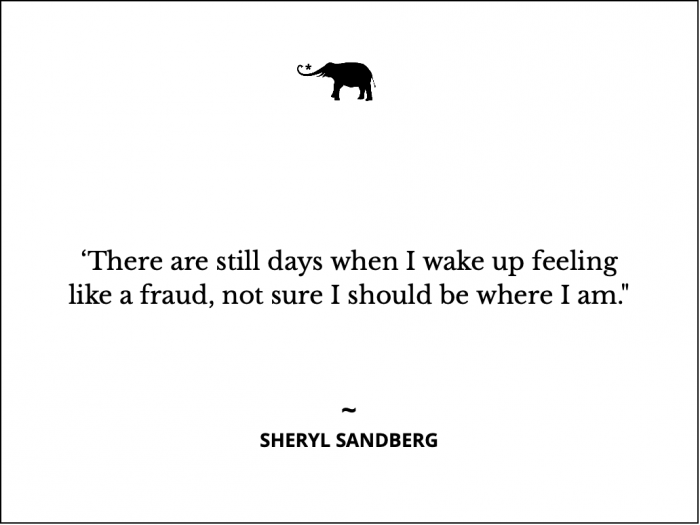View this post on Instagram
Why is it that when we start to feel life falling into place, we’re suddenly struck with dread?
We’re experiencing wonderful bouts of joy and contentment, and anxiety rears it’s head like a wild beast. We feel our heart sink and our mind take over, and what some people like to call it—impending doom.
It’s that time when we start to worry that something could go wrong, and we fear this goodness in our lives won’t last. Or we’re super excited about everything and we feel overwhelmed by our successes.
Perhaps we have achieved something, or gone through a period of progression. Maybe healthy and wonderful love came into our lives or things lined up almost magically. We’re saturated with peace, joy, and excitement, but this dreaded feeling comes over us like a dark cloud.
We start looking over our shoulders, worried the rug will be pulled from underneath us. Maybe all of this was a nasty joke from the universe and we’re not meant to feel this content.
We don’t want to be “too happy” or “too free” in case the unexpected happens—or the worst.
Before we know it, we find ourselves in a loop. We look for problems where there may be none. We find excuses to leave, quit, or give up. We create scenarios in our heads and look for a way out. We may end up sabotaging ourselves, relationships, and pursuits, leaving us with regret.
We know things are good but can’t help but doubt our abilities, and doubt ourselves.
We are, in a sense, uncomfortable with the peace—with the dust settling. It feels too tranquil. Too quiet. Where’s the noise and chaos we are used to? Something must be up, right?
And even though we don’t want to be anxious all the time, we’re used to this state—it’s comfortable to us. It keeps us on alert and prepared for the unexpected.
Perhaps we experienced things that shook us to our core in our lives or in childhood. We were vulnerable, and it felt like the world came crashing down on us. Perhaps someone, or multiple people, broke or violated our trust, or someone did something hurtful that was so left field.
Perhaps we aren’t used to things going well because we don’t know what that feels like and are accustomed to stressful environments and situations.
It could also be that we don’t know the difference between fearful and excited anxiety because, well, they can feel the same.
Or maybe we’re having a good ol’ dose of imposter syndrome. We find it hard to believe our efforts led to achieving the results we have acquired. We doubt ourselves or our abilities. We start to think it was sheer luck—and it won’t last. As a result, we feel like a fraud, a common finding amongst higher achievers and perfectionists.
And so, no matter our reasoning, the anxiety grips us—and to feel comfortable again, we sabotage ourselves. Or we wonder why every time we feel good about ourselves and life, we are stuck with this dreaded feeling.
While there are multiple possibilities, I want to explore the impacts of trauma on neurodevelopment and how exposure to stressful, traumatic, and threatening situations (especially in childhood) may have something to do with how we process the good in our lives now.
The impacts of childhood trauma and neurodevelopment.
Neuroimages show childhood trauma is associated with gray matter being reduced in the hippocampus and dorsolateral (dl)PFC—the regions in the brain that help with the regulation of threats and emotions. In addition, there is an increased reactivity in the amygdala (the fear center), particularly sensitivity to negative stimuli.
So, if children are exposed to “negative” situations (abuse, neglect, stress), they could become highly sensitive to potential threats, and this becomes their baseline (Herringa, Ryan J 2018). This can be a possible explanation of why we perceive things negatively rather than positively, and fear the worst instead of having faith in the best if we were exposed to stressful or harmful conditions in our youth.
Research has also found a decreased resting capability in the traumatised brain due to stress on the amygdala (Herringa, Ryan J 2018). This might explain why feeling relaxed and going with the flow doesn’t come naturally and must be something we work at overtime. While being on alert to the possibility of danger is helpful in stressful and threatening environments, what about when those same threats are no longer present?
What if we have moved on, moved away, or are working on healing from the past? What if we are trying to live a more healthy, joyful life? It’s not healthy for us to continuously live chronically stressed and fearful.
The transition phases of healing.
As we renew ourselves over and over throughout life, it’s important to remember that our brain also goes through renewal. It’s cleansing itself of the past and learning new, unfamiliar ways to operate in life.
Our brains are these awesome machines in our heads that help us every day to survive and thrive (if we allow). But if the brain has been traumatized, we most likely internalized the trauma and now live in a survival state. This has become our baseline.
It could explain why we have this tug of war within ourselves when part of us (our soul, spirit, the real us, our heart) desires certain things in life, but we have fear, doubt, or worry. Our conditioned mind is saying we are not capable or trying to protect us from the unknown.
When trauma occurs in childhood, this is when children are also the most vulnerable. The joy is stolen when pain is inflicted on a defenceless young one.
So in our adult lives, is it any wonder that when we feel joy and peace, we may also feel vulnerable? And when we feel vulnerable it feels “too relaxed” and unguarded? What if we let go and enjoy life, and something happens? Will we be able to handle the worst or deal with the pain? It seems easier to stay on high alert, to stay prepared, and to be watchful for what may or may not happen in the future.
Or what about if we become successful and are unable to handle it? Again, in unknown territory perhaps we fear that we will not be able to handle what we don’t know is coming our way.
This feeling of dread may show up during these times of new growth, contentment, joy, and success—but we don’t need to sabotage our lives, our efforts, and our progression.
We need to remember that healing isn’t exactly linear. When we move from the old self to the new self, we often face what we have repressed for so long. And we do this in seasons, not all at once. But also, the brain may be trying to keep us in our old ways because it’s familiar. When we grow and evolve, the brain goes through changes too.
We may think that when we introduce a new habit or up-level our lives we’re supposed to feel good and blissful immediately, or least at first.
On the contrary, the practice of new habits may lead to a healthier, wholesome version of us over time, but the transition phase may induce periods of anxiety, doubt, and panic.
It’s learning to embrace the unfamiliar. And if joy and goodness is not something we are used to, then neither is our brain.
If, according to research, there is increased amygdala reactivity in the brain while under stressful and threatening situations, and a decreased resting functionality, this could explain why rest—or contentment and peace in our lives—is foreign to us. Our brain barely recognises this restful, joyous state. It’s used to being under pressure.
If our baseline has been stress and anxiety for so long, and we’re accustomed to things going wrong, or every time we felt happy, something terrible happened—we learned this as a way of life.
Maybe in our past when things did fall into place, we sabotaged the progress (unconsciously) before anything could happen to us because our brain was saying “danger”—but the danger was joy, an unfamiliar feeling to us. We may have sabotaged things for a sense of control—we wanted to beat life to avoid being hurt.
Maybe it’s a case of feeling that what we have achieved was pure luck because we are still working on loving ourselves and seeing our worth. We’re on a journey of self-discovery and when things fall into place, we’re both excited and nervous about it. And that kind of anxiety feels the same in the body so we confuse it with something being wrong.
We may even doubt our abilities and wonder if we can maintain this new level of being that we have worked toward—and in comes imposter syndrome. We’re not alone in feeling this way either.
Michelle Obama and Facebook COO Sheryl Sandberg have expressed feelings of imposter syndrome too. So even in positions of power and success, women experience these feelings of doubt and worry. Research has found these feelings are often linked to women and minority groups. This can also include people with a negative perception of the self, who struggle with self-worth, often due to exposure to harmful environments and situations (stress, trauma).
This generally leads to questioning our abilities, so it’s a common phenomena and one that we can discuss and work through. (Feenstra, Sanne et al. 2017-19)
On the journey of healing and understanding ourselves, it’s important to remember that there are changes on a neurolevel that are occurring, and that anxiety can be a mixture of excitement and nervousness. We may also be learning about what joy feels like—and when we start to feel this dread, it may be a sign that life is actually good.
It’s our brain, or old self feeling a little uncomfortable and out of sorts from the progression in our lives. And that’s okay. Maybe it’s a way to protect ourselves from further hurt or the unexpected—and is that such a bad thing? All we need to remember is that while it’s trying to keep us safe, we need to continuously be self-aware and move through these periods with patience to embrace the joy we are well-deserving of.
Have you ever experienced imposter syndrome? How do you deal with these sudden feelings of dread when life is good?
In my next article, I will be sharing the symptoms of psychological and emotional trauma—and how this may manifest in adulthood.
~
References:
Trauma, PTSD, and the Developing Brain Herringa, Ryan J New York: Springer US Current psychiatry reports.
Contextualizing the Impostor “Syndrome”. Feenstra, Sanne; Begeny, Christopher; Ryan, Michelle; Rink, Floor; Stoker, Janka I; Jordan, Jennifer Switzerland: Frontiers Research Foundation
Cover story: Feel like a fraud? American Psychological Association.


 Share on bsky
Share on bsky





Read 13 comments and reply